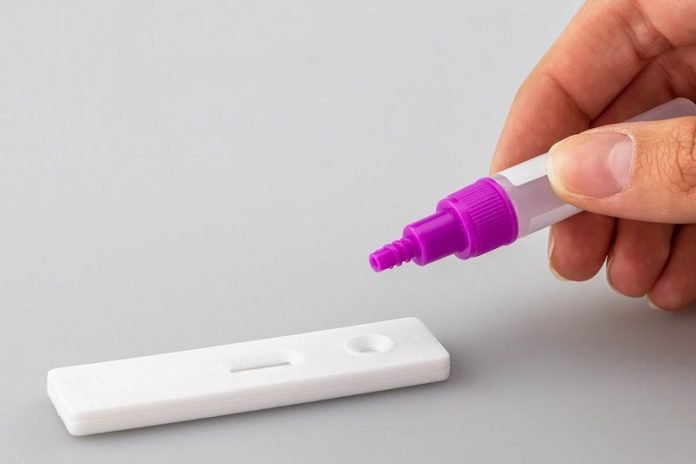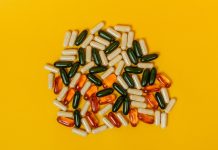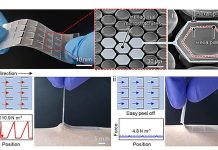
In a new study from the University of Minnesota, researchers found the Abbott BinaxNOW and Quidel QuickVue—two widely used rapid at-home COVID tests—may sometimes fail to detect the Omicron variant in the first days after infection.
In the study, the team tested 30 people infected with COVID at five workplaces that experienced what were most likely outbreaks of the Omicron variant last month.
The people received both saliva-based PCR tests (the gold standard) and rapid antigen-based tests involving nasal swabs.
Researchers found it took three days, on average, for people to test positive on the two rapid antigen tests after their first positive PCR result.
One possible explanation of this is that Omicron may replicate faster or earlier in the throat and mouth than in the nose.
The study findings are consistent with other evidence that the at-home tests that many Americans have come to rely on may fail to detect some Omicron cases in the early days of infection.
Researchers suggest people should not stop using these tests. Instead, they should remain cautious after getting negative results, especially when they have symptoms or believe they may have been exposed to the virus.
The team shared their results with federal officials in real time, as the outbreaks were occurring last month.
If you care about Covid, please read studies about most effective face-mask practices to reduce spread of COVID-19, and when is it OK to take a rapid antigen test for COVID rather than lining up for a PCR swab.
For more information about health, please see recent studies about common drugs that could treat COVID-19, and results showing that scientists find your maximum risks of COVID infection with and without masks.
One researcher of the study is Dr. Robby Sikka.
Copyright © 2022 Knowridge Science Report. All rights reserved.



